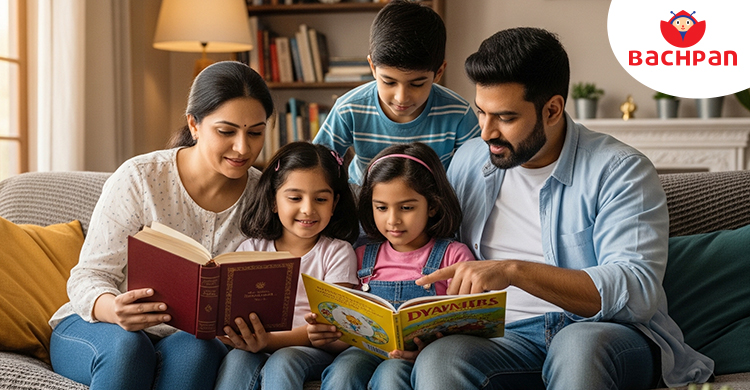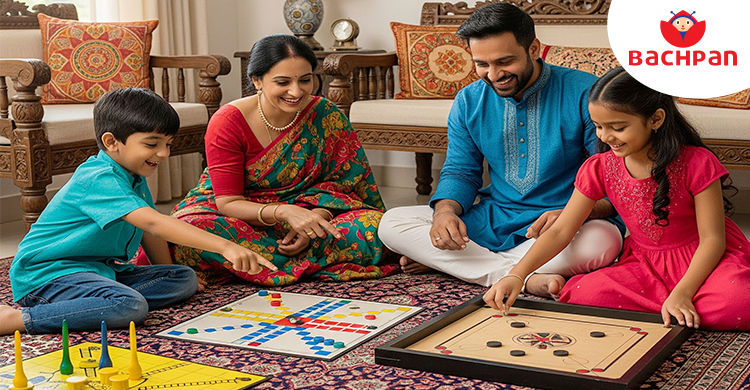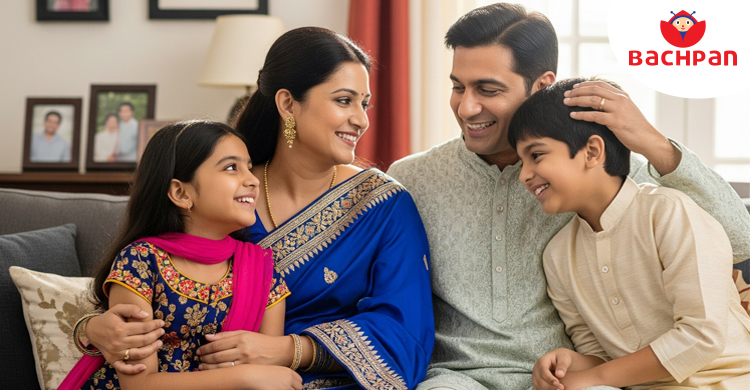How To Bond With Your Child: Effective Parenting Tips

How to bond with your child is one of the most important aspects in any parent’s life. Open communication, confidence, and trust are all fostered by a strong connection. Intentional parenting can make all the difference in today’s hectic world. This blog provides useful, doable advice to help you build a relationship with your child, foster their wellbeing, and establish a caring, nurturing atmosphere where they feel safe, respected, and understood. Bonding with your child builds trust and confidence, just like developing good habits in kids strengthens values.
Why Is Parent Child Bonding Important?
Yes, parent-child bonding is important. But why? A solid parent-child relationship fosters confidence, emotional stability, and trust. It establishes the groundwork for your child’s positive growth, improved communication, and healthy relationships throughout their lifetime. Strong bonding also plays a key role when parents choose the right preschool that supports holistic growth.
Emotional Benefits of Bonding with Children
Building relationships with kids promotes resilience, self-worth, emotional stability, compassionate social skills, and a healthy attachment style. It fosters emotional control, trust, and a sense of belonging that lasts a lifetime, creating a safe base for exploration, well-being, and successful future relationships.
How Bonding Improves Child Confidence and Trust
Strong bonds lay the groundwork for lifelong self-esteem. Bonding gives children a sense of security and belonging, making them feel understood and valued. This emotional connection builds trust, allowing them to freely express themselves. As their needs are regularly met, their confidence increases, promoting future independence, strength, and healthy relationships.
10 Parenting Tips to Bond With Your Child
Bonding shouldn’t feel like a tedious task, so if you want to strengthen your relationship with your child, try these ten parenting tips for better bonding with your child that transform ordinary moments into unforgettable experiences!
1. Spend Quality One-on-One Time
To improve your relationship with your child, spend quality time with them one-on-one. Participate in their favourite activities, listen intently, and establish daily routines with them. Engage in games, tell stories, and promote candid discussions. To foster a long-lasting relationship, prioritise being present over being perfect, cherish the little things, and constantly show love and care. You can spend quality time by engaging children in fun festival activities that make learning exciting.
2. Communicate Openly and Honestly
Foster a close relationship with children by communicating honestly and openly. Encourage questions, validate emotions, and listen intently. Be calm when expressing your opinions, show empathy, and refrain from passing judgement. Establish a secure environment for communication, talk about everyday situations, and foster understanding, trust, and lasting relationships.
3. Use Positive Parenting Techniques
Develop a closer relationship with your child by using positive parenting strategies. Actively listen, prioritise effort over results, establish clear boundaries, show love every day, acknowledge accomplishments, exercise patience, set an example of empathy, participate in group activities, promote open communication, and offer steady, supportive emotional development.
4. Bond Through Play and Games
Engage in enjoyable activities with your child to foster a bond through play and games. Play puzzles, outdoor sports, role-playing games, or board games. Together, they foster learning, creativity, and constructive communication while strengthening emotional ties, fostering trust, and creating long-lasting memories via laughter, teamwork, and shared joy. The crucial question of how to bond with your child is also addressed by these happy and meaningful moments.
5. Read Stories and Explore Together
Curiosity, imagination, and communication are stimulated when parents and children read aloud stories and explore the world together. Storytime fosters values and intimacy, and shared pursuits like nature hikes or easy discoveries foster joy, trust, and enduring memories, establishing deep connections that go beyond everyday routines.
6. Share Family Rituals and Traditions
Emotional ties between parents and children are strengthened when family customs and rituals are shared. In families, these customs—from sharing meals on the weekends or establishing bedtimes or festivals—create cherished memories, a feeling of community, and cultural values that promote warmth and trust.
7. Encourage Creativity and Learning Together
Fostering creativity and education together improves the relationship between parents and children. Read books together, solve puzzles, explore the outdoors, and create art, music, or stories. Encourage curiosity, ask questions, and collaborate to complete projects. Moments of shared learning foster happiness, trust, and treasured memories.
8. Show Affection and Express Love
Love and affection are the foundation of a solid relationship with your child. Hugs, smiles, and kind words are ways to express warmth. Every day, show them how much you care by listening to them, valuing their work, and spending time with them. Little acts of kindness foster lifelong intimacy, security, and trust. These interactions show how to bond with your child in simple ways.
9. Support Independence and Growth
Children who are encouraged to be independent develop resilience and self-assurance. Let them take small chances, make age-appropriate decisions, and grow from their errors. Fostering their development through direction rather than control increases trust, instills a sense of accountability, and creates a positive, respectful, and understanding relationship between parents and children.
10. Be a Role Model for Your Child
The best way to connect with your child is to be a role model for them. Be kind, honest, and respectful in your day-to-day activities. Children learn more from your actions than from your words, so set a good example and foster enduring relationships based on love, trust, and connection.
Common Challenges in Bonding With Children
Busy schedules, generational differences, screen distractions, and communication barriers can all hinder a child’s ability to bond, so it’s important to find meaningful ways to connect with your child.
Overcoming Communication Gaps with your Child
Building a strong bond with your child requires bridging communication gaps. Children may find it difficult to communicate their emotions, or parents may misunderstand. These gaps can be filled with patience, open communication, and active listening, which will make your child feel heard, respected, and emotionally connected to you.
Dealing with Emotional Distance in Parenting
Managing emotional distance as a parent is a common issue that can erode the relationship with children. A lack of candid communication, unresolved emotions, or not spending quality time frequently causes gaps. Empathy, patience, and persistent efforts to foster intimacy and trust are necessary to overcome this gap.
Conclusion: Strong Bonds Lead to Happy Families
A happy and supportive family is built on strong parent-child bonds. Children feel safe and appreciated when their parents show them love, care, and time. Trust and understanding are strengthened through small actions, such as listening, spending quality time together, and engaging in parent-child bonding activities. A child’s confidence and character are shaped by these healthy relationships, which also improve emotional well-being. Strong ties eventually result in contented families that develop harmoniously and with love. At Bachpan Play School, we encourage parents to bond with children through activities, celebrations, and innovative concept rooms designed for overall growth.

THEY NEED YOU THE MOST…IT’S JUST THAT THEY DON’T SAY IT TOO OFTEN.
Keep bonding with your kids well!
Happy Parenting!!!!!!!







